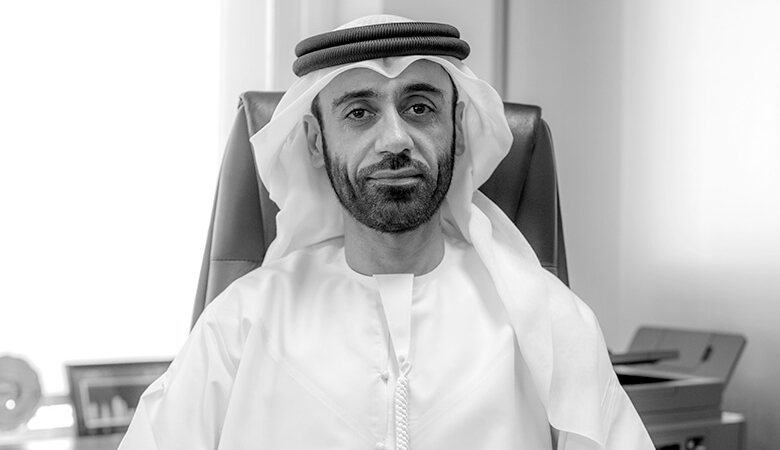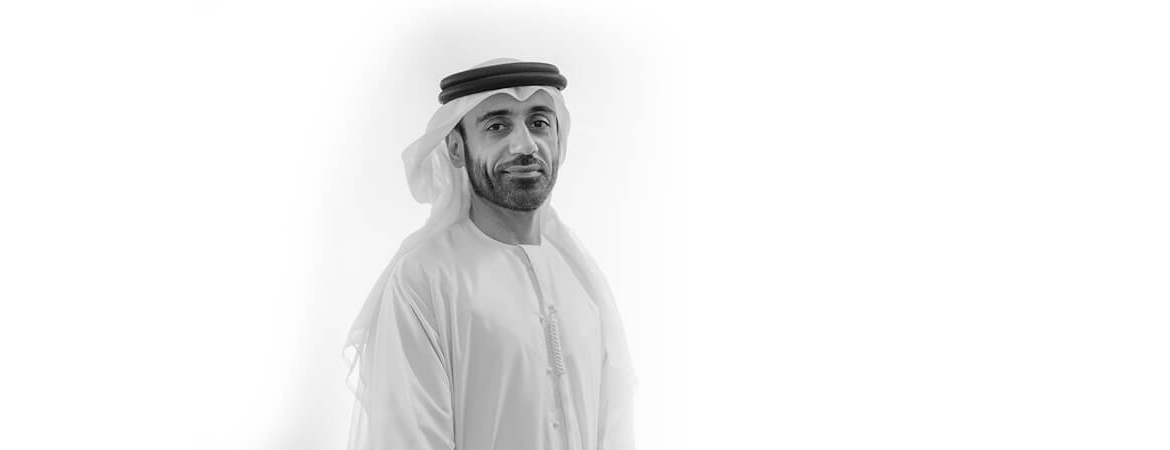In this issue of Emirates Projects, we speak to HE Ali Al Jassim, Chairman of EmiratesGBC, about his role in the organisation and the challenges and opportunities for the retrofit market in the UAE and wider Gulf territories; and the studies done by EmiratesGBC to push further push sustainability in the region.
You are the new Chairman at EmiratesGBC. Can you give us a brief about your role and the role of EmiratesGBC?
I joined EmiratesGBC this year, and it is an honour to be part of an organisation that has evolved as one of the most inspiring entities driving the sustainable development narrative of the nation in just ten years. My predecessors have done excellent work in positioning EmiratesGBC and in fostering strong public-private partnerships, and my mandate is to build on the great work that EmiratesGBC has been doing.
EmiratesGBC plays a crucial role in building a net-zero environment in the UAE. To push this further, we have conducted a very comprehensive and integrated approach to promoting sustainable built environments. We have a year-round calendar of events that are focused not only on strengthening awareness about green buildings but also to encourage our members and the community to follow industry best practices. Besides this, EmiratesGBC has a broad set of technical trainings and programmes for its stakeholders. We have been conducting these for many years now, and our members find it valuable to enhance the overall quality of their projects.
How does retrofit support the green environment of the UAE?
According to reports by World Green Building Council, buildings and construction account for 36% of global final energy use and 39% of energy-related carbon dioxide emissions. This underlines the importance of making the building stock more sustainable, and, for the UAE, to drive its green vision, it is imperative that its existing buildings are made more efficient – and retrofitting is key to this.
The development strategies of the UAE look at sustainability not just from the perspective of achieving energy and water savings but also places importance on the retrofit of the existing building stock.
Abu Dhabi is driving the retrofit initiative with the Department of Energy announcing the completion of the Emirate’s first Energy Saving Performance Contracting project to retrofit eight government buildings and the goal of retrofitting 150 government buildings. This is part of Abu Dhabi’s Demand Side Management and Energy Rationalisation Strategy 2030 that aims to achieve a 22 per cent reduction in energy consumption and 32 per cent reduction in water consumption over the next decade. A Super ESCO for Abu Dhabi has been designed to lead retrofitting in 3,000 government buildings, which will catalyse the retrofit market.
The Dubai Integrated Energy Strategy 2030 has also set the goal of retrofitting over 30,000 buildings in Dubai to make them more energy-efficient. Dubai Electricity and Water Authority (DEWA) has planned to spend US$8billion towards this retrofit programme. It is one of the largest budgets to date for a retrofit programme in the UAE. Dubai may soon regulate hotels to retrofit, considering that there are more than 700 hotels in the Emirate. Ras Al Khaimah launched its building retrofit programme in October 2018 with a target to retrofit 3,000 buildings by the end of 2040.
What are the key challenges and opportunities of the retrofit market in the UAE and the wider region?
The retrofit market has evolved considerably in the past years, especially following the announcement of the Dubai Integrated Energy Strategy 2030. Etihad ESCO estimates that retrofitting 30,000 buildings by 2030 will help generate savings of over 1.68 TWh energy and 5.64 billion imperial gallons of water, as well as eliminating 1 million tonnes of carbon dioxide emissions. The opportunities are enormous, especially with the nation’s large existing building stock, several of them designed and built before sustainability considerations were mandatory.
On the other hand, there are challenges too because many perceive retrofitting as cost-prohibitive, not taking into consideration the long-term benefits of undertaking it. Further, there are challenges relating to financing schemes by local and international banks in the region to support building owners and developers to conduct retrofits. Many building owners do not realise the need to look at retrofitting as tenants pay energy and water bills. The need for greater awareness about building retrofits is crucial, and that is one of the areas that EmiratesGBC works on. We have been working closely with business forums and the UAE government as well as building industry stakeholders to foster awareness of the benefits of adopting and implementing retrofit strategies.
Can you tell us the role of EmiratesGBC when it comes to retrofit in the UAE?
As a nonprofit organisation that advances green building principles for ensuring sustainability, we have set up technical guidelines for retrofitting existing buildings in the UAE. These guidelines have been developed in conformance with the UAE National Agenda 2021, officially endorsed by the Ministry of Public Works and the Dubai Supreme Council of Energy, and are in conformance with local, sustainable strategies such as the Dubai Integrated Energy Strategy (DIES) and Abu Dhabi Vision 2030.
Apart from these guidelines, we have also conducted Building Retrofit Training (BRT) Programme to build a knowledge-sharing platform for everyone. The Building Retrofit Training Programme launched in 2017, focuses on building capacity for undertaking sustainable building retrofits to promote energy and water efficiency. We have been following a committed and concerted move – from strengthening awareness to capacity building to drive the retrofit market.
Through our partnership with the Dubai Supreme Council of Energy (DSCE) as a City Liaison on the Building Efficiency Accelerator (BEA) platform, we further promote the retrofitting programme. BEA is a public-private partnership collaboration, launched under the Sustainable Energy for All, which is intended to accelerate the implementation of building efficiency policies and programmes.
The goal has been to double the rate of building energy efficiency by 2030 globally. Dubai is the first city in the Middle East to participate in the BEA. The 2019 Building Efficiency Accelerator (BEA) project report studied 121 properties in the UAE. The results highlighted performance disparity amongst all properties between best and worst performers to learn from each other.

We also conduct workshops and events such as a ‘Focus Day on Deep Retrofitting’ in partnership with Dubai Chamber of Commerce & Industry (Dubai Chamber) to reiterate that retrofitting existing buildings is very important to achieving energy efficiency.
We have launched the EmiratesGBC Benchmarking Programme, whereby the performance of buildings in terms of energy and water performance is measured in a cross-sector manner to establish a knowledge base of data and key analytical information. This will enable building owners, developers and end-users to better understand the need for improved energy performance and drive them towards retrofitting.
We are now conducting a market study to understand the current market situation as well as the challenges and opportunities related to deep retrofit projects. As part of the vision for the UAE to be a global leader for sustainability in the built environment, the study will help explore solutions and approaches to retrofitting buildings that go beyond current renovation programmes to achieve greater energy and financial savings.
The study also aligns with and supports EmiratesGBC’s Net Zero Centre of Excellence, which was formed as a think tank and accelerator to advance net zero carbon buildings in the UAE. It is hoped that these deep retrofits will pave the way for the existing building stock to ultimately decarbonise and support the industry to move towards a net-zero carbon future.
EmiratesGBC also conducts Building Retrofit Training and other training workshops. Can you tell us how this training helps in teaching the fundamentals of retrofit and sustainability?
Our Building Retrofit Training programme is the first-of-its-kind in the region and has been thoughtfully created to address region-specific requirements. It outlines actionable steps that can help stakeholders achieve sustainable building practices.
The BRT Programme is offered in partnership with Dubai Supreme Council of Energy (DSCE) and Masdar and teaches the fundamentals of building retrofit. It provides awareness and technical guidance to industry professionals on the economically viable methods that can be implemented to reduce a building’s use of energy and water and to attain improved operational efficiency and savings.
The programme offers two course levels to suit varying needs: The introductory course, a one-day workshop, provides knowledge of sustainability to primarily non-technical participants and industry professionals looking to understand the basics behind retrofit in the Gulf region.
The advanced course is designed for industry professionals with prior knowledge and experience of sustainability and retrofit methods. Candidates train on the various methods to be deployed on retrofit projects and can further hone their technical capacity for more effective post-retrofit maintenance and preventive care. The advanced course is a two-day workshop and participants successfully passing the post-course examination will become an EmiratesGBC certified Building Retrofit Specialist.
To further support professional and the industry, we have also produced the Technical Guidelines for Retrofitting Existing Buildings, a handbook in English and Arabic, which serves as a textbook for the upcoming EmiratesGBC Building Retrofit Training Programme.
EmiratesGBC has also done a Building Efficiency Accelerator study. Can you tell us about that?
As mentioned, Dubai is the first city in the Middle East committed to the BEA, and EmiratesGBC served as the BEA City Liaison in partnership with Dubai Supreme Council of Energy to evaluate the energy performance of hotels, schools and malls in the city.
Our Technical team assessed the energy and water performance of existing buildings against similar buildings, and some of the key findings are:
- A median hotel in Dubai consumes 252 kWh/m2/year of energy and 1,486 litres/m2/year of water
- A median resort in Dubai consumes 334 kWh/m2/year of energy and 1,676 litres/m2/year of water
- Overall, best performing hotels consume 58% less energy per area, 65% less water and the best resorts consume 78% less water
When it comes to schools, the report found that:
- A median school in Dubai consumes 134 kWh/m2/year of energy and 852 litres/m2/year of water
- Newer schools are likely to consume more energy and water per unit area
- Overall, best performing schools consume 61% less energy per area, 85% less water
When we look at malls:
- A median hotel in Dubai consumes 465 kWh/m2/year of energy and 1,300 litres/m2/year of water
- Over half the energy, on average, was consumed by mall tenants with remaining energy consumption split between the cooling and common areas
- Comparisons with international benchmarks show that a median enclosed mall in Dubai consumes 57% more energy per unit area than a median enclosed mall in the USA
- Overall, best-performing malls consume 35% less energy per area, 58% less water
These findings help hotels, schools and malls to further elevate their energy and water use efficiency standards by following industry best practices. The findings also remind us that there is a strong potential for savings and operational efficiencies that can be achieved through remedial actions such as audits, retrofits, energy management and the use of awareness campaigns or trainings to drive changes in behaviour.
The report also highlights the importance of deep retrofits as key in advancing towards 100% Net Zero Carbon Buildings by 2050 and to achieve the goals of the Paris Agreement of keeping global warming well below 2 degrees Celsius.
